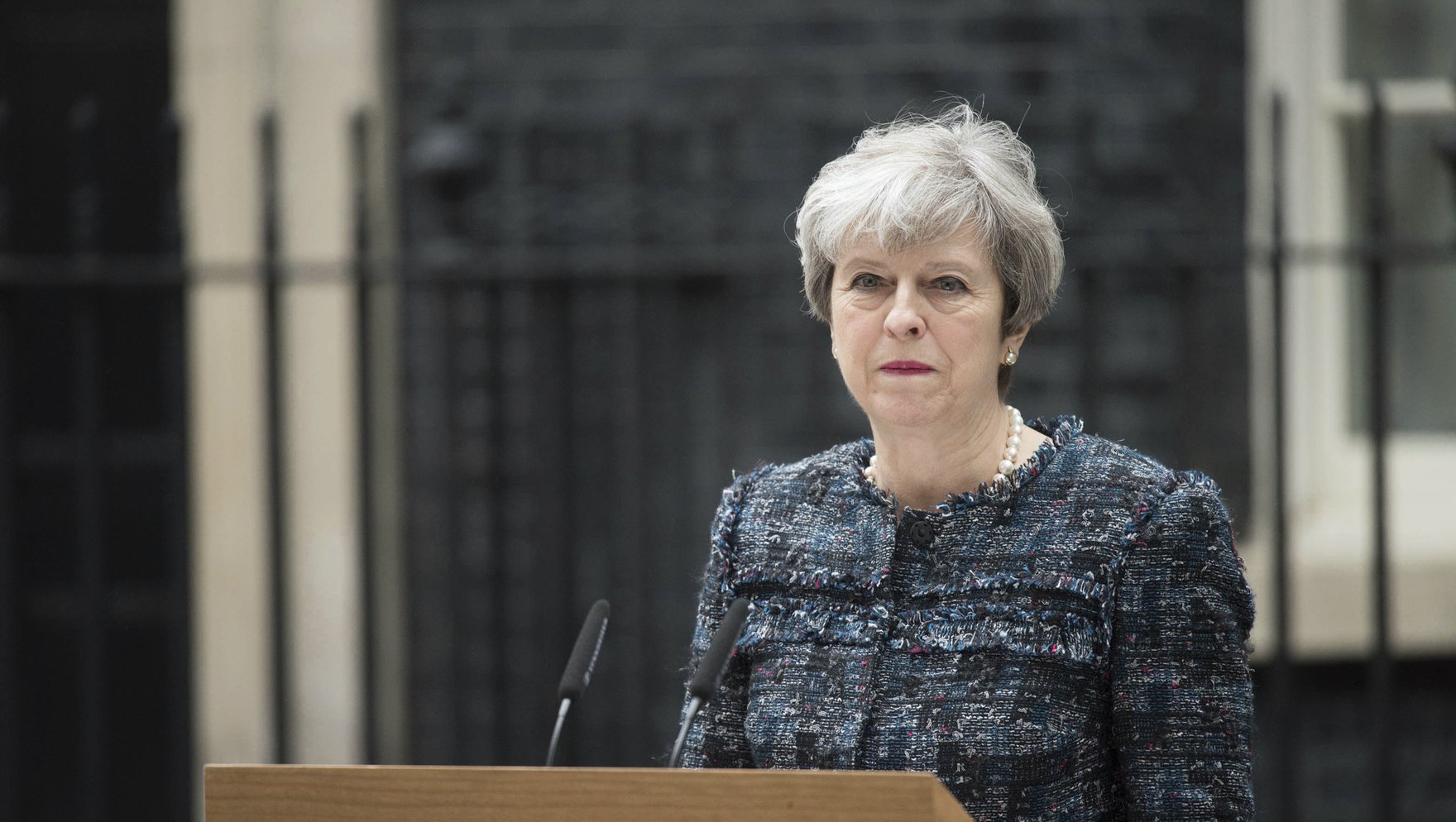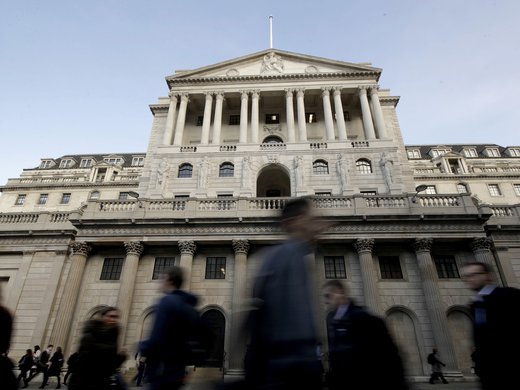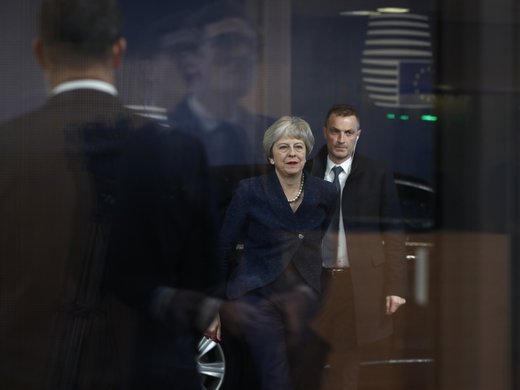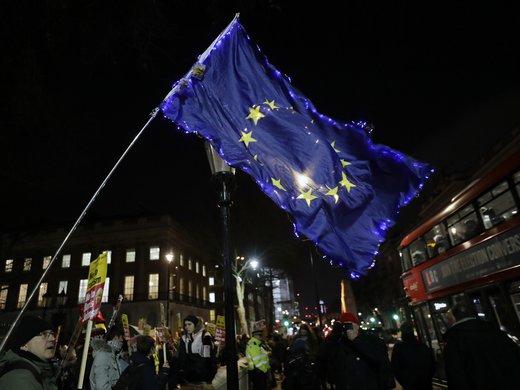On June 7, British Prime Minister Theresa May will resign from her position. Her departure announcement comes while the United Kingdom is still deep in the Brexit crisis that May tried valiantly — though ineffectively — to resolve.
Prior to May’s announcement, it was clear that she was running out of options and would need to make significant compromises to win the support of a majority of parliamentarians: either about a future relationship with the European Union (e.g. staying in a customs union) or about the process (holding, a second referendum or even a general election). European leaders’ patience with May’s efforts to cajole the UK parliament into approving the withdrawal agreement had worn out and they had refused her second request for another short extension of the article 50 notice, insisting instead on a longer extension, until October 31, 2019. This meant the United Kingdom had to participate in the European Parliament elections, which proved a boon for former UK Independence Party leader Nigel Farage and his new Brexit party. May’s replacement will soon be chosen, but achieving a parliamentary approval for a new Brexit strategy will be no less challenging, especially if the new leader has not learned from May’s unsuccessful battles.
While the immediate trigger for May’s decision to resign appears to have been reactions from members of her own Conservative Party to her announced intention to introduce legislation in the House of Commons to pass the Brexit deal into law, for many months before this, she had been something of a zombie leader. Assuming the role after Prime Minister David Cameron’s hasty post-referendum resignation in June 2016, May soon lost standing in her party by calling a snap election in which the Conservatives lost their majority and thus found itself beholden to Northern Ireland’s Democratic Unionist Party to support their parliamentary agenda. Her efforts to develop negotiating redlines for a Brexit deal, despite deep fractures in her party, made her few friends, lost her more than 30 ministers and exposed her to constant attack and ridicule.
After postponing a first parliamentary vote on the withdrawal agreement because of fear of its defeat, in December 2018 May managed to survive a Conservative Party no-confidence vote by making a last-minute promise to her MPs that she would stand down as leader before the next scheduled general election. When the Brexit deal eventually was put to a parliamentary vote in January 2019, May’s government suffered a historic and massive defeat, with 432 MPs voting against, and only 202 voting to support it. Her government was then tested by — but survived — a no-confidence vote in the House of Commons. Twice more, May tried unsuccessfully to obtain parliamentary approval for the withdrawal deal, pursuing a course of brinksmanship as a first, then a second Brexit deadline loomed, showing little appreciation of views outside her own party, and rousing the ire of John Bercow, Speaker of the House of Commons, for flouting parliamentary rules.
Last month, May announced she would resign, quoting humanitarian Nicholas Winton: “Never forget that compromise is not a dirty word. Life depends on compromise.” She is also famous, however, for legitimizing the idea that “no deal is better than a bad deal.” She seemed to have expended all her negotiating energy inside the Cabinet room and the Tory caucus, leaving very little for across-the-aisle negotiation with other parliamentarians. She seemed to ignore the growing currents of resentment throughout the country, giving short shrift to concerns of business or “remainers” in Scotland, Wales, Northern Ireland and London, or young voters and EU citizens who worried about their future after Brexit. After the House of Commons held a series of indicative votes to determine if there was anything that a majority of parliamentarians agreed upon — it turned out that a majority opposed a no-deal Brexit — May went back to Brussels seeking to reopen discussions and was firmly told there was no room for further negotiations. Grudgingly, concerned that she was getting nowhere, EU members gave May a short extension of the Brexit deadline, and then a longer one, until October 31.
In April, May finally did hold talks with the leader of the Labour Party, Jeremy Corbyn, to see if a consensus could be reached on a Brexit plan, and was planning to introduce the withdrawal bill, allowing MPs a chance to add amendments. It was this seeming act of compromise that triggered such outrage in May’s own party, causing even the Conservative leader of the House of Commons, Andrea Leadsom, to resign, and resulting in May’s announcement of her own resignation as of June 7.
This brief review of May’s efforts to bring Brexit to fruition shows that while she was valiant in her battles, she was unsuccessful in her war, and was unlikely to become more adept at winning compromises in the months leading up to the October 31 deadline. A gaggle of Brexit hardliners have stepped forward to contest the Tory leadership race, with former Foreign Secretary Boris Johnson taking an early lead. They declare that they are ready to drive a hard bargain with the European Union and, if they fail in this, to withdraw from the European Union without a deal. However, this bravado misses a fundamental issue — the very one that so thoroughly defeated May at every turn — that under the UK constitutional system as explained by the UK Supreme Court in the Miller case, Parliament must have a meaningful vote on Brexit, and Parliament has already twice voted against a no-deal Brexit. If a new Tory prime minister were to attempt to implement a no-deal Brexit without Parliament’s approval, this would launch a constitutional crisis that would make May’s parliamentary woes look trivial in comparison. Should this course be attempted, one would expect the opposition to call another no-confidence vote against the government, which, if successful, could lead to a new government being formed by opposition parties, and failing that, a general election.
Therefore, with May’s departure we can feel no joy, as President of the European Commission Jean-Claude Juncker expressed it. The Brexit problem remains, and the same options remain: approving the withdrawal agreement negotiated between the European Commission and the May government; trying to negotiate a different deal; holding a second referendum; crashing out of the European Union; or withdrawing the article 50 notice and backing away from Brexit. For any option to succeed, it would need parliamentary approval. It is doubtful that any of the contenders to replace her have Theresa May’s valour, and even less likely that they have a better plan for resolving Brexit.




